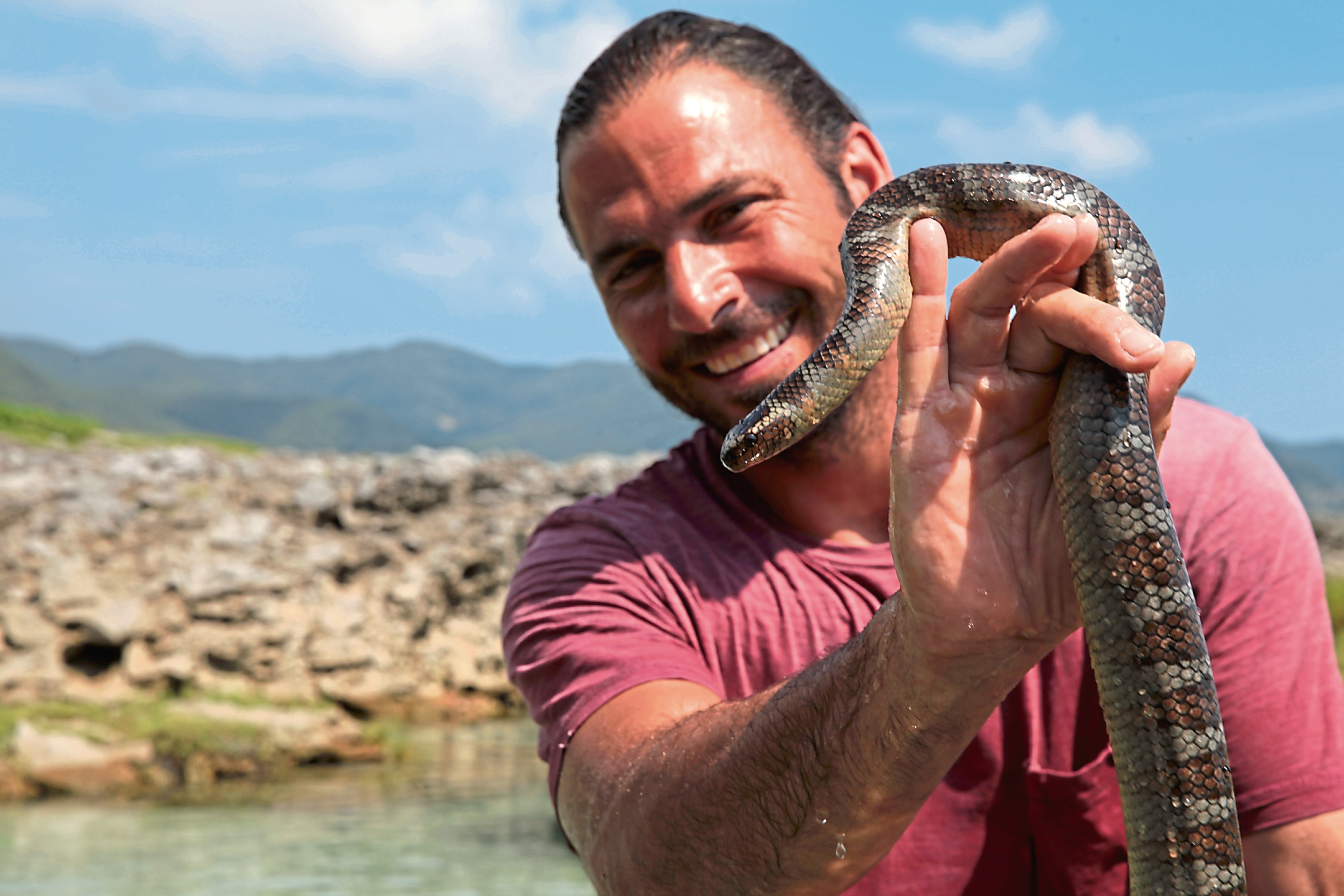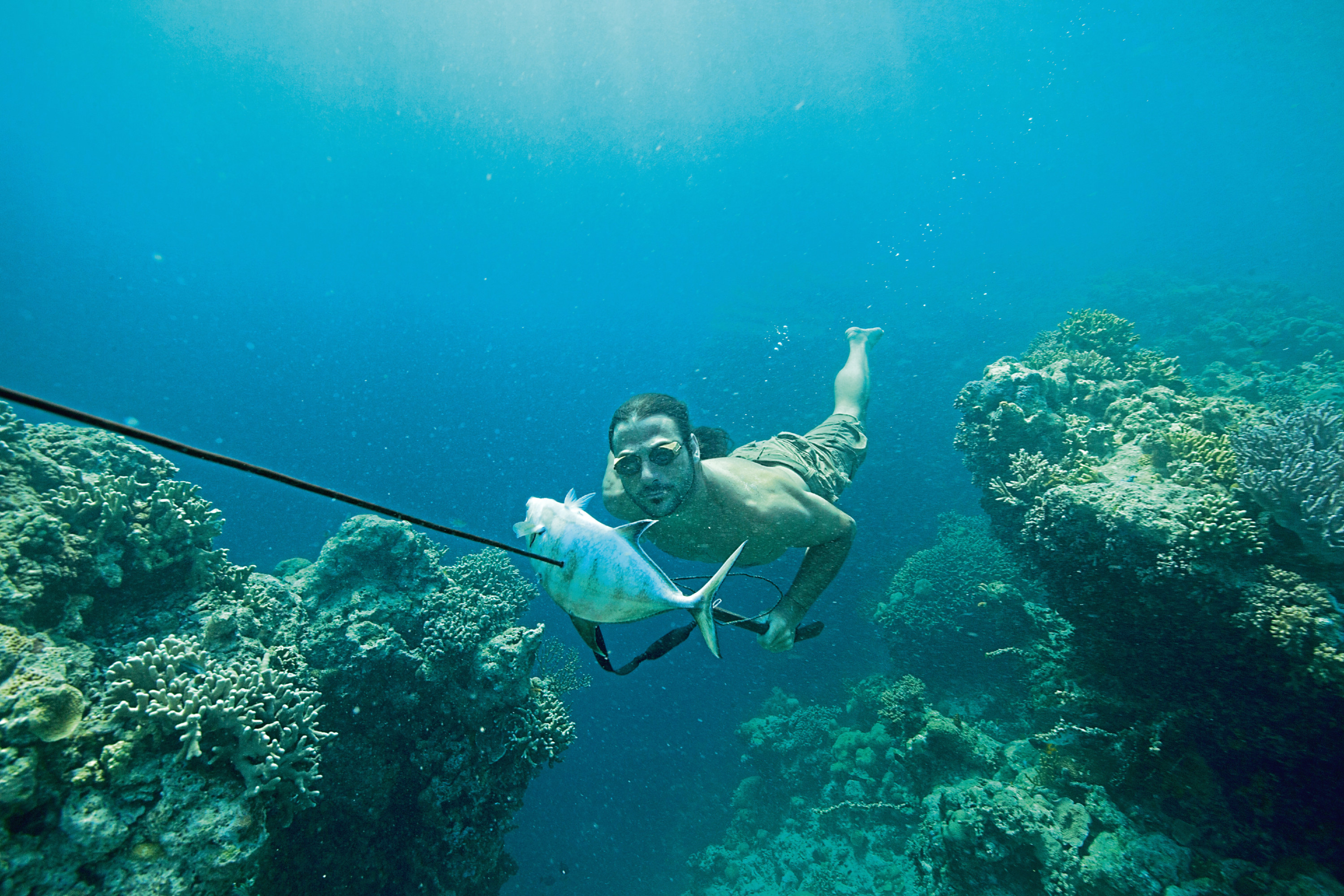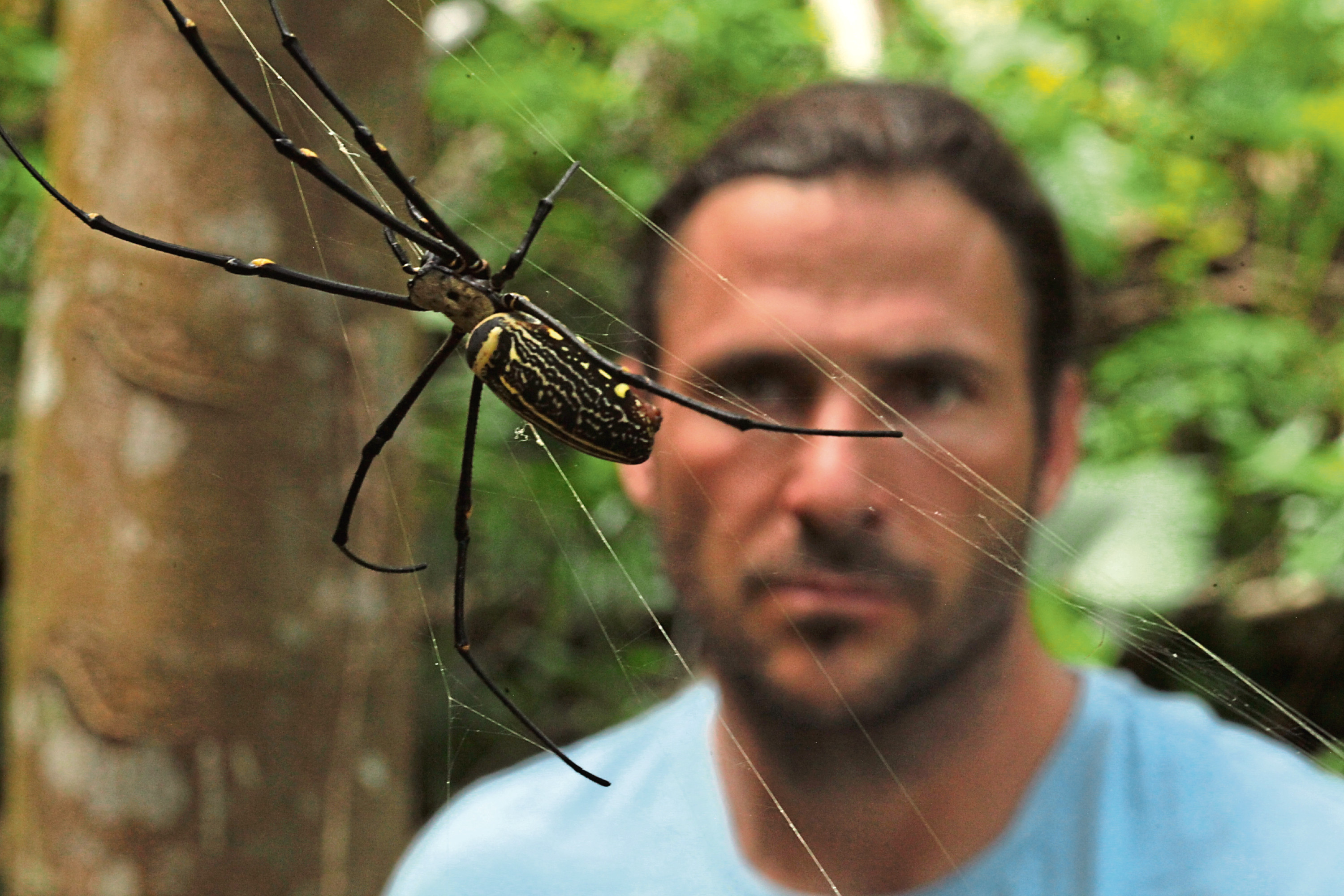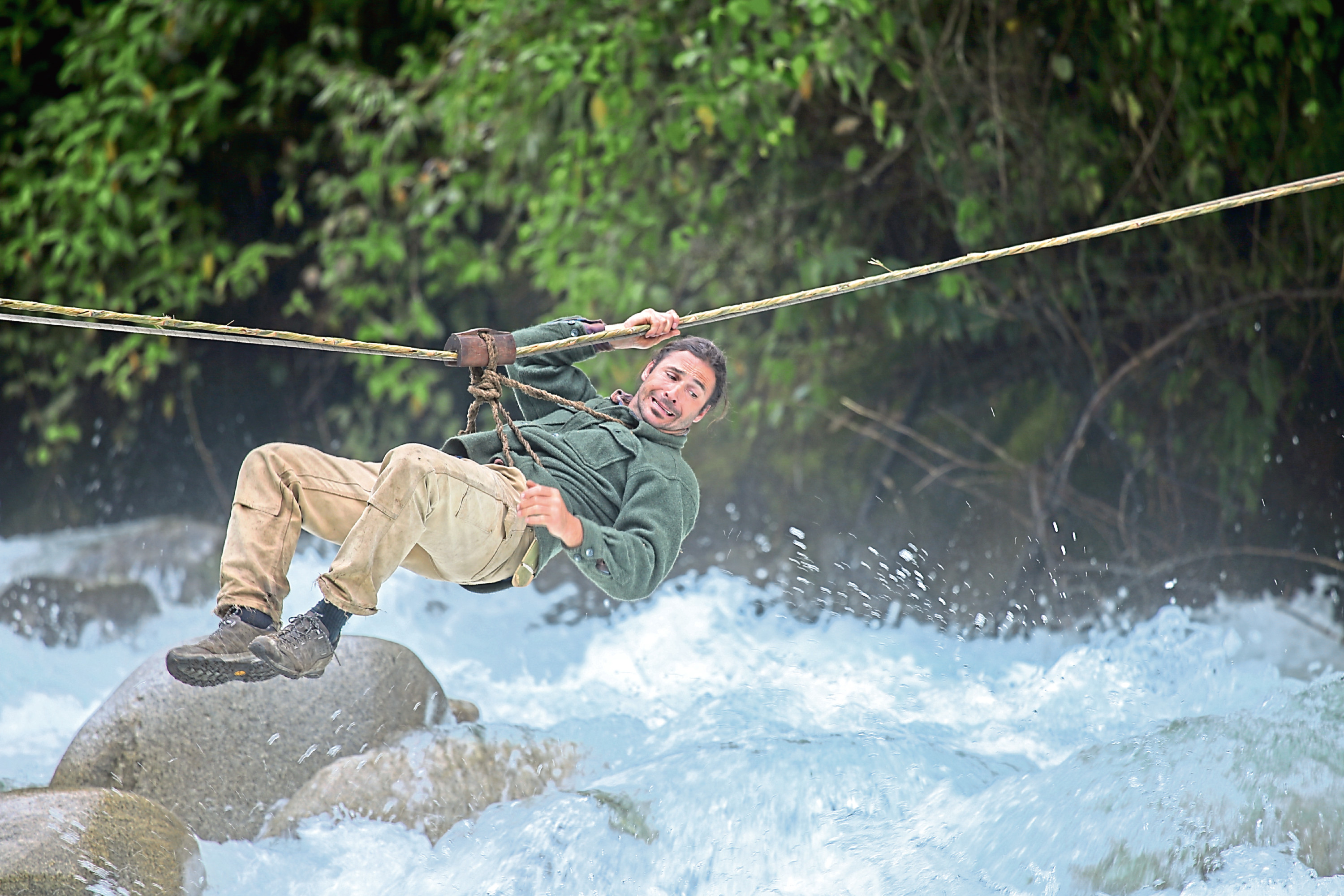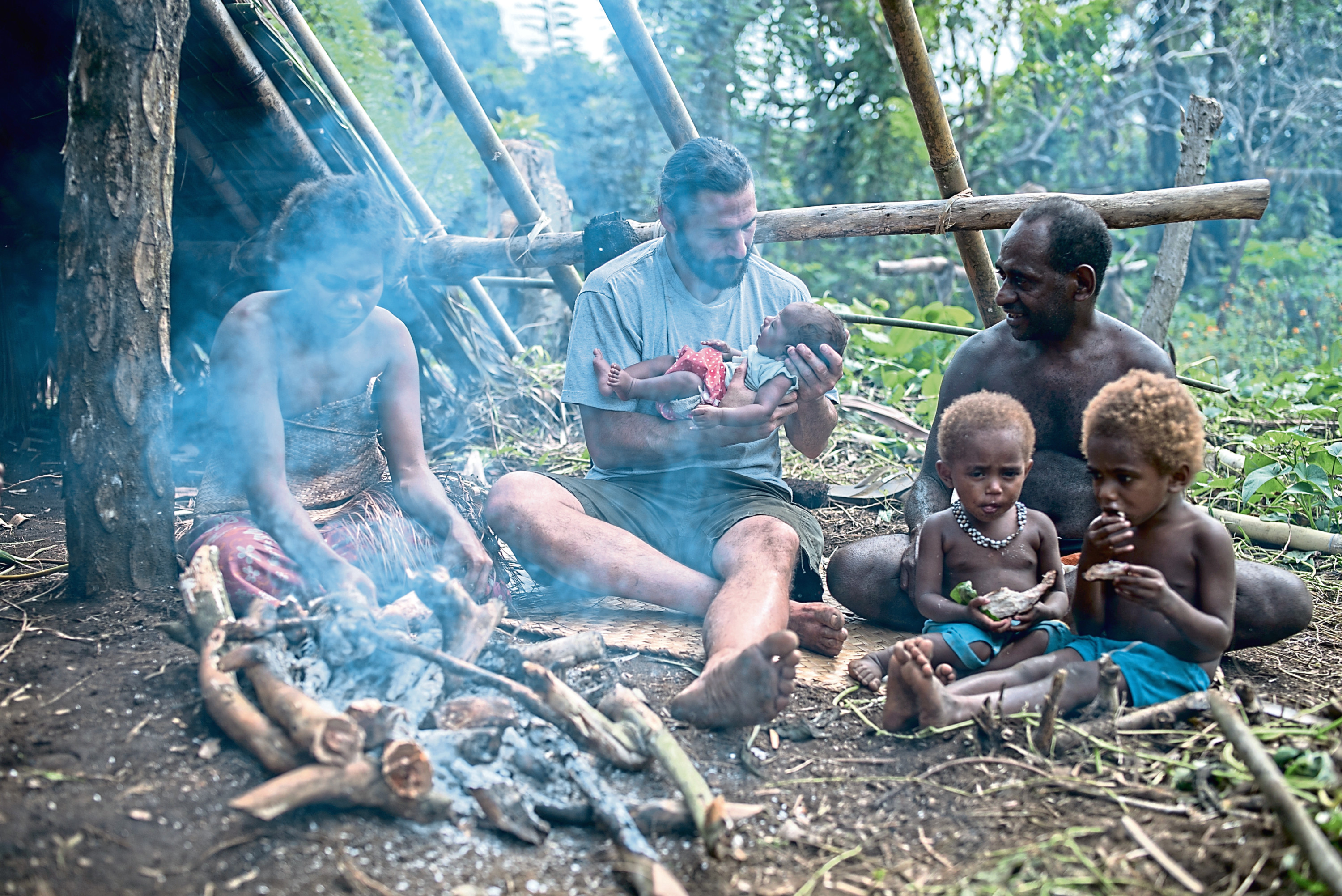
THE average person avoids jungles, deserts, killer animals and scorching African plains – but there is one man who heads straight for them.
Hazen Audel is the sort of man who sees a battle for survival as a nice challenge, rather than a huge setback that could spell the end.
A Kootenai and Salish Native American and Greek by descent, he was born and brought up in Spokane, Washington, USA, and has a degree in biology.
But he is also rather good at losing himself in some of the most unforgiving places on our planet and learning to survive on whatever he can find.
He has been making some new films of his escapades for the National Geographic Channel, and it has been anything but easy.
“This year, Vanuatu was really testing,” says Hazen. “Not only for myself but for the whole film crew.
“On one island, there was a cyclone out in the South Pacific, so we were just getting blasted by rain the entire time.
“We were not prepared for that situation. We had prepared to hike from one side of the island to the other, climbing a volcano along the way, but every step was in mud.
“It never stopped raining, and the entire film crew were totally debilitated, with foot rot and trench foot. We never got warm, never got dry and couldn’t sleep, as we were lying in puddles.
“We also had to wear the same clothes every day, so they got serious skin infections. It turned into an epic expedition, and even once we got off that island, we realised that a neighbouring volcano was erupting!
“Poisonous gases were taking over the island, which was being evacuated, and we were in the middle of nowhere. Nobody knew where we were, and we were just a day away from being gobbled up by the volcano.
“It was pretty epic.
“All our food got eaten by ants and rats, so we all had to live off the land. Insane!”
If that sounds like the worst experience of your life, to this guy, it was another awesome adventure that taught him fresh lessons about how to survive in this kind of place.
“You could romantically say that it was a wonderful time, but those are the kind of experiences you don’t plan for,” he says.
“That said, we are celebrating still being alive. And we wonder when we can go back again!
“There was some serious bonding that went on during that.
“Making these films, in such wild places, you don’t have the comforts of home. The crew suffers along with me – if I go into a bees’ nest and am getting stung by hundreds of bees, the camera person is there, too, and the sound person. I drag them through hell and back!”
Knowing all he does, is the night or day more treacherous?
“I’d probably say night-time,” Hazen admits. “The biggest thing that kills most people in the outdoors is cold. You go to some places that are 40 below zero, and if you are not prepared for that, you will definitely not make it.
“But you can go to tropical places and if you’re wet and without much food, you can run the risk of hypothermia at night, to the extent that you are not going to recover in the morning.
“Night is also when mosquitoes come out. And poisonous snakes. Snakes kill more people in the Tropics than any other animal. Even though I love snakes, you have to be aware of that.”
Having met some of the world’s most remote tribespeople, and learned some of their tricks for survival in this harsh, modern, intrusive world, Hazen prays such peoples can still be on our planet in centuries to come.
He has strong opinions on how best to ensure that is possible.
“The diversity of how peoples live is wonderful, and at the moment there are so many people to explore,” he explains. “Not just tribes, but other people who live off the environment, growing their own food, hunting and gathering, where money is nonexistent.
“But the world is changing. Every day, we lose languages and knowledge that has taken tens of thousands of years to develop.
“We’re at one strange time in human history, where it could take just one generation for all that to be lost. What I try to do is look and listen, watch people, then show the world what I get to see. That’s what I’m passionate about.
“We’re conned into thinking we live modern Western lives and we are not primitives, but look at us – if a store is closed, we don’t have dinner! Our lives are very fragile.”
Hazen, who is also a teacher, biologist, natural history artist and craftsman, says his own background didn’t automatically make him good at all this.
“I was fortunate to have an awesome dad,” he says. “He had nothing to do with nature – he built hot rods for a living! But he recognised that I loved nature and fed my interest
“My mom bought me books about snakes and creepy crawlies, and though Dad didn’t know anything about camping, he’d take me.
“I think everyone is interested in bugs and snakes when they’re little, but I just never outgrew it. A time in my life came when I thought, well, I have to become a biologist if I want to continue being around nature and animals.
“I went to college, but it sucked. I wasn’t learning what I wanted, so I dropped that at 19 and went to Ecuador. I thought I’d travel for a couple of weeks, but I ended up camping at the side of rivers.
“I bought a 50lb bag of rice and supplemented my diet with fish. I wound up getting to know the local people, who wondered what the hell this white guy was doing!
“In time, I became part of the community. I was invited into their homes, and realised these were the people who knew how to fish, knew where the snakes were, and knew every single plant in the forest.”
Don’t bet against there coming a time when we need people like those Ecuador natives, and amazing men like Hazen Audel, to teach all of us how to survive.
Our world will find, sooner or later, that there is no endless supply of food and comfort without learning how to find it, and only men like him will be able to help.
Primal Survivor is on National Geographic, Thursdays at 8pm.

Enjoy the convenience of having The Sunday Post delivered as a digital ePaper straight to your smartphone, tablet or computer.
Subscribe for only £5.49 a month and enjoy all the benefits of the printed paper as a digital replica.
Subscribe